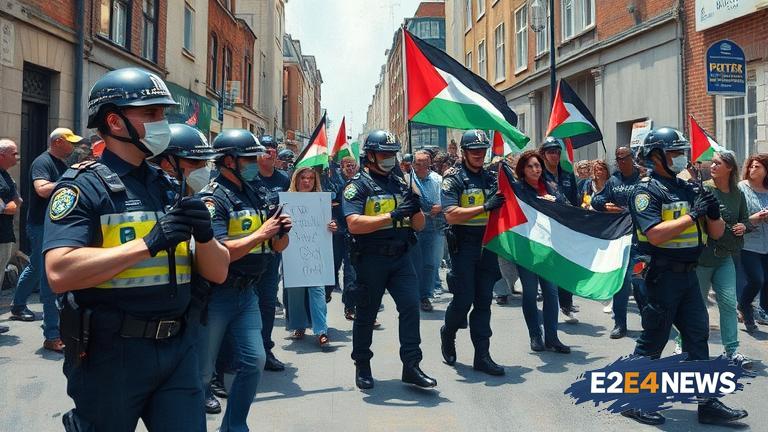In a shocking display of authoritarianism, UK police have arrested 86 people for participating in protests against the ban on Palestine Action, a pro-Palestine activist group. The arrests were made across the country, with the majority taking place in London. The protests were held in response to the government’s decision to ban Palestine Action, citing concerns over national security and public order. However, activists argue that the ban is a clear attempt to suppress free speech and silence critics of Israel’s occupation of Palestine. The protests were largely peaceful, with demonstrators holding banners and chanting slogans in support of Palestine. Despite this, police used heavy-handed tactics to disperse the crowds, including the use of riot gear and batons. Many of those arrested were charged with public order offenses, including obstructing the highway and failing to comply with police instructions. The arrests have been widely condemned by human rights groups and pro-Palestine organizations, who argue that they are an attack on the right to free speech and assembly. The UK government has faced criticism for its handling of the situation, with many accusing it of prioritizing the interests of Israel over those of its own citizens. The ban on Palestine Action has also been criticized for being overly broad, with many arguing that it will have a chilling effect on free speech and activism. The protests are part of a larger movement in support of Palestine, which has gained momentum in recent years. Activists are calling for an end to Israel’s occupation of Palestine and for the UK government to take a stronger stance in support of Palestinian rights. The situation is ongoing, with many of those arrested still facing charges and potential prison sentences. The UK government has yet to respond to criticism of its handling of the situation, but it is clear that the arrests will have a significant impact on the pro-Palestine movement. The use of police force to suppress peaceful protests has also raised concerns about the state of democracy in the UK. As the situation continues to unfold, it is likely that we will see further protests and activism in support of Palestine. The international community is also watching the situation closely, with many calling for the UK government to respect the rights of its citizens to free speech and assembly. The ban on Palestine Action is just one example of the UK government’s increasingly authoritarian approach to dissent, and it is likely that we will see further crackdowns on activism in the future.
